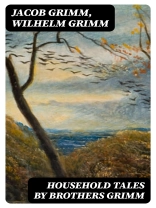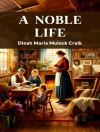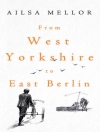Household Tales by Brothers Grimm is a captivating anthology that delves into the depths of human experience through a diverse array of folktales. This collection weaves together stories of morality, adventure, and supernatural encounters, reflecting the rich tapestry of European folklore. The tales range from enchanting narratives filled with magical beings to moral lessons embedded in everyday occurrences, offering a kaleidoscope of imaginations. The Grimm Brothers have curated a selection that stands as a testament to the enduring power of storytelling, with standout pieces that capture universal truths and timeless themes. The Brothers Grimm, Jacob and Wilhelm, were pioneers in the preservation of folk traditions and their contributions to the genre are both vast and profound. As part of the Romantic literary movement, they sought to preserve the cultural heritage embedded in oral traditions, gathering stories from various regions and giving them a cohesive form for posterity. Their work aligns with the Romantic era’s emphasis on folklore as a source of national identity and cultural history, bringing together a collection of narratives that include voices from different backgrounds and dialects, ultimately enriching our understanding of the past. Household Tales offers a unique opportunity for readers to engage with a treasure trove of cultural riches, showcasing the myriad perspectives, styles, and themes within a single volume. Readers are invited to explore this anthology not only for its entertainment value but also for its educational merits and the insights it provides into 19th-century European society and beyond. This collection sparks a dialogue between tradition and modernity, encouraging readers to appreciate the complexity and beauty of oral storytelling traditions. Whether for scholarly inquiry or leisurely reading, this anthology promises a rewarding journey through the narrative traditions of a bygone era.
เกี่ยวกับผู้แต่ง
Jacob Grimm (1785–1863) was a seminal figure in the development of folklore studies and German philology. Alongside his brother Wilhelm, he is most renowned for the collection of tales known as ‘Grimm’s Fairy Tales’ or ‘Household Tales by Brothers Grimm’ (‘Kinder- und Hausmärchen’), which achieved widespread acclaim and have been translated into over 100 languages. Jacob, the elder of the two, was born on January 4, 1785, in Hanau, Hesse-Kassel. Apart from being a part of the duo that captured the fables and folklore of Europe, he was also a committed linguist and philologist. He penned works such as ‘Deutsche Grammatik’ (German Grammar), which laid the groundwork for the study of Germanic languages and historical analysis of their development. His contributions to the area included scholarly examinations of myths and the connection between language and culture. Together with his brother, Jacob sought to preserve the German storytelling tradition, and their collective work delved into themes of morality, tradition, and cultural identity. Their tales were characterized by a mix of enchantment and darkness, often reflecting the complexity of the human experience. Jacob Grimm’s meticulous approach to gathering and annotating these tales ensured their enduring legacy. His contributions have left an indelible mark on children’s literature, cultural studies, and the appreciation of folklore across the world.












